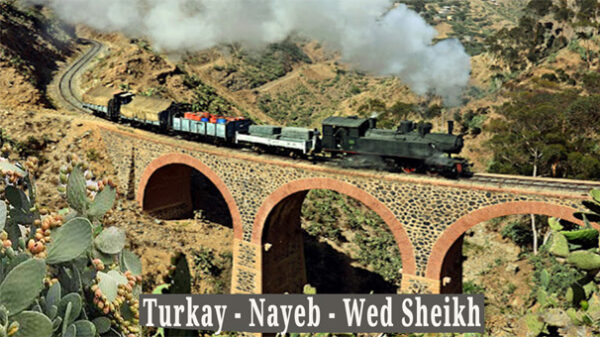The River Remembers (Part II): The Archive of the Unsaid

“I came back to my people not because of incapacity, but because I thought I had a duty. I must find out the truth.” Tayeb Salih
“The bullet was the means of physical subjugation. Language was the means of spiritual subjugation.”
Ngũgĩ wa Thiong’o
“Memory is a small room no one visits alone.”
Mahmoud Darwish
If the river remembers, it is not through census or chronology. It is through silence that what gets caught in the reeds, what slips beneath the surface, and what resurfaces years later, unrecognizable but familiar. This installment of The River Remembers turns our attention away from the names and flags of colonizers and toward the psychic debris they left behind, as it were: linguistic residue, fractured desire, and a still-lingering accent of shame.
We return now to Tayeb Salih, not to chronicle his every word, but to read between them. Season of Migration to the North offers no list of grievances, no heroic martyrdom. Instead, it offers Mustafa Sa’eed: a man who internalizes empire, weaponizes intellect, and loses himself in the very narratives he once hoped to rewrite. He is both the postcolonial subject and its cautionary tale.
When he says, “I am no Othello,” he does not reject Shakespeare outright; he rejects being cast in a role that renders him noble, tragic, and dead. It is this defiance that resonates today, as we seek to understand what colonialism did not only to our borders but to our psyches. Not the road the Italians paved, but the voice they paved over. Not the bridges they built, but the language they burned through.
If Tayeb Salih’s narrator is a man returning from Europe with silence lodged in his throat, then Mustafa Sa’eed is the silence itself: articulate, seductive, and destructive. His brilliance is his weapon, but it is also his wound. The Empire didn’t kill him; it rewrote him, line by line, until he couldn’t recognize the difference between performance and self.
Salih never shows us Sa’eed during his time in London. We only hear the fragments he chooses to tell or cannot help but confess. What remains is a mirror shattered into memory and myth. The novel never resolves whether Sa’eed was a colonized subject bent on revenge or a willing inheritor of colonial prestige. That ambiguity is not a flaw. It is the very terrain postcolonial subjects must navigate.
In my own work-in-progress, I have returned to that mirror again and again, not to replicate it, but to reposition it. What happens when the postcolonial subject is no longer just haunted by the empire but interrogates the haunting? What if the silence does not merely consume but gives birth to new speech? imperfect, partial, and yet urgent? The novel I am shaping follows a woman whose inheritance is not the empire’s grandeur but its omissions. Her return is not to a village or a nation, but to a fractured archive where memory, language, and loss echo in multiple tongues.
It is no accident that rivers run through both Salih’s novel and my own reflections. The Nile in Season of Migration to the North does not merely carry people; it carries contradictions. It connects North and South, colonizer and colonized, past and present. It is, in Salih’s hands, a narrative current. And like all strong currents, it resists easy direction.
But what lingers most in Salih’s work and in the silence between his lines is language. Not just which tongue is spoken, but who controls the grammar of memory. Mustafa Sa’eed was educated in English, adorned in British wit, and damned by it. His eloquence, his so-called mastery of the colonizer’s tongue, is both a tool and a trap. He speaks beautifully, but never entirely for himself.
Ngũgĩ wa Thiong’o, in Decolonising the Mind, tells us that the spiritual subjugation of a people begins with language. Once your stories are told in another tongue, you begin to dream in someone else’s image. And once that happens, even rebellion risks becoming mimicry. The question, then, is not whether we speak English, Arabic, Tigrinya, or Ge’ez but whether the language we speak lets us name our grief.
In this, too, I find myself returning both in writing and reflection to the mirror. In my own narrative explorations, the question is not just who am I? But who taught me to ask it that way? The protagonist I’m shaping doesn’t only translate between languages; she carries the weight of untranslated pain. Her mother’s silence is one dialect. Her grandmother’s ululation, another. Even her rage is a kind of grammar. And like Salih’s narrator, she begins to realize that remembering is not about accuracy; it is about articulation.
The river, then, is not just memory. It is the voice. It is the thing that insists on flowing, even when dammed, even when diverted. If Salih gave us a man undone by the empire’s echo, perhaps we are now ready to trace the echo’s source, not to dwell in it, but to transform it.
In every postcolonial nation, there are names we forget and silences we inherit. Some are the result of fear. Others, of shame. But many more are chosen. Chosen because to remember truthfully would unravel too much: family myths, national pride, the fragile scaffolding of identity built on borrowed stone.
And so we speak around things. We call betrayals “history.” We call complicity “survival.” We let monuments rise while stories are buried. Salih knew this. That’s why Season of Migration to the North is not a political treatise. It is a reckoning disguised as narrative. Its power lies in what it withholds, what it forces the reader to excavate.
As I continue this series, I do so with a quiet urgency: not to settle old scores, but to understand how we came to speak the way we do about empire, about belonging, and about ourselves.
Part III will turn its gaze toward the silences we inherit and the stories we dare not tell. It will ask, what do we pass on when we pass nothing on? And what kind of resistance can be found not only in remembering but in refusing to forget?
Until then, may every river remember. And may every mirror reflect more than just the face of the colonized.




Awate Forum